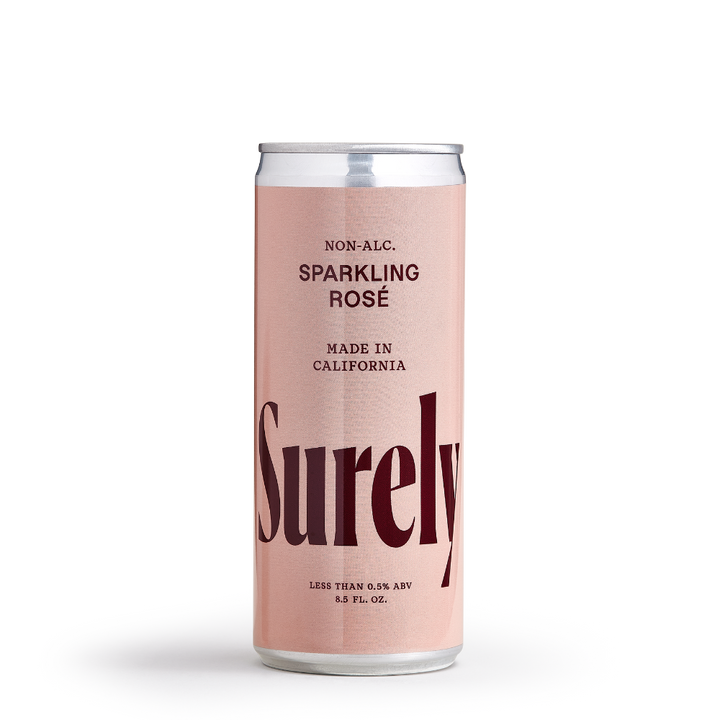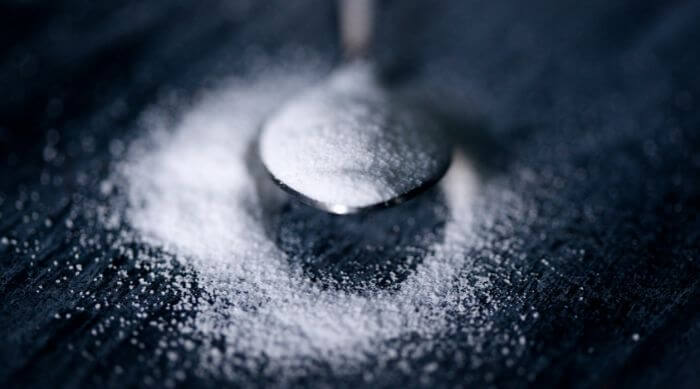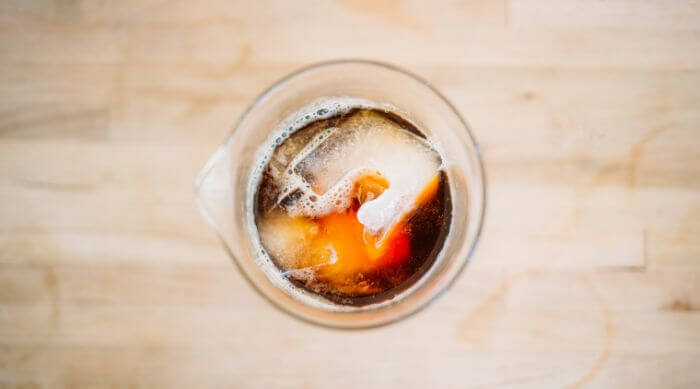Having a drink at the end of the day to help yourself relax is fine for most, but it can also make you feel worse in the long-run. If you’re already feeling crummy or have a history of depressive symptoms, alcohol and depression don’t mix.
Is there a connection between depression and alcohol? There is a connection between depression and alcohol. Drinking too much can make you more likely to develop depression, and feelings of depression can also make you more likely to cope with alcohol.
Going sober is a good way to relieve symptoms of depression and anxiety disorders, especially when alcohol problems are the trigger.
Non-Alcoholic Sparkling Rosé Can 4-Pack

$24.99
Dry non-alcoholic California sparkling rosé with crisp, light notes of strawberry, peach & raspberry. Rosé all day without the hangover.TASTING NOTES: Flavors of soft strawberry, peach, and raspberry notes are balanced with a light acid for a full finish. FOOD… Read More
Table of Contents
Does Alcohol Cause Depression?
How Alcohol Impacts Mental Health
Alcohol Affects Neurotransmitters and Brain Function
Drinking Too Much Can Affect Your Sleep
Alcohol May Amplify a Low Self-Image or Extend Depression
Does Alcohol Cause Depression?
Alcohol can trigger symptoms of depression. It can also cause a type of depression that falls under substance/medication-induced mental disorders. These are disorders that happen as a result of excessive alcohol consumption or a substance abuse problem.
Mental health conditions like eating disorders, bipolar disorder, and depression often exist alongside co-occurring disorders like alcohol addiction.
Even if you don’t have an alcohol use disorder, any alcohol use can trigger or worsen symptoms of depression.
When looking for treatment options, it’s important to consider the cause of your symptoms. Are you drinking because you’re depressed, or might you be depressed because you’re drinking? In many cases, taking alcohol out of the equation is the best first step at feeling better long-term.
How Alcohol Impacts Mental Health
Alcohol is a central nervous system depressant. The immediate effects of a fizzy mimosa during Sunday brunch with friends might feel pretty good as a social lubricant, artificially calming your nervous system.
However, heavy drinking habits can significantly impact your mental health over time. The National Institutes of Health reports that regularly consuming large amounts of alcohol increases the risk of a person developing temporary anxiety and depressive symptoms.
How does alcohol affect your mental health? Alcohol affects your mental health by causing chemical changes in your brain, affecting your quality of life, and potentially triggering feelings of depression.
Alcohol Affects Neurotransmitters and Brain Function
Alcohol impacts chemical messengers in the brain, like GABA, dopamine, and serotonin. These neurotransmitters work together to regulate your thoughts, behavior, and emotions.
At low levels, drinking can make you feel more relaxed and dull your anxiety. It can cause a quick release of dopamine, the happy hormone responsible for your brain’s reward center.
When those initial effects of alcohol wear off, that’s when alcohol’s effects as a depressant kick in. Neurotransmitters slow down along with your speech and your movements. You start feeling tired, and any existing symptoms of depression amplify.
Alcohol is nicknamed “liquid courage” for its ability lower your inhibitions. Diminished inhibitions might make you more likely to participate in karaoke, but they can just as easily contribute to dangerous actions like self-harm.
In people who misuse alcohol, the initial effects on brain chemistry are why alcohol addiction can be so challenging to treat. It can be hard to stop drinking when your cravings tell you a drink will make you feel better, even if it’s short-lived relief.
Drinking Too Much Can Affect Your Sleep
You may fall asleep faster after a drink or 2, but your sleep after large amounts of alcohol isn’t going to be quality sleep. Binge drinking can cause insomnia or delay REM sleep (the fourth stage of your sleep cycle, responsible for learning and memory retention).
A lack of quality sleep in the short term can cause brain fog and mood problems. People with sleep issues are at an increased risk for cardiovascular conditions, a weakened immune system, and depressive episodes.
If you’ve always used wine to wind down, Surely’s non-alcoholic wines are easy to add to your evening routine.
Non-Alcoholic Red Blend

$24.99
A complex, smoky, and layered NA red unlike any other. Dark fruit meets smooth vanilla, toasted oak, smoke & spice. Not a varietal. A completely unique sip.… Read More
Alcohol May Amplify a Low Self-Image or Extend Depression
Alcohol use can amplify negative feelings like low self-esteem and anxiety. If you’re already diagnosed with depression, drinking can worsen symptoms or keep you in a depressive state for longer.
You Shouldn’t Drink While Taking Antidepressants
It’s not safe to drink alcohol if you’re on a prescription for antidepressants. You could make your symptoms worse or trigger new side effects.
Some antidepressants, particularly selective serotonin reuptake inhibitors (SSRIs), can increase serotonin levels in the brain.
When combined with alcohol, this can lead to a condition called serotonin syndrome. It can be life-threatening and involves symptoms like confusion, agitation, rapid heartbeat, and high body temperature.
Signs of Depression
It’s important to recognize the signs of depression if you think your alcohol use factors into how you’ve been feeling. The severity of symptoms can vary depending on the type of depression.
In general, symptoms of depression may include:
- Persistent feelings of sadness and emptiness
- Pessimism
- Low self-esteem
- Fatigue
- Difficulty completing daily tasks
- Loss of interest in regular activities
- Lack of interest in socializing
- Fluctuating moods
- Changes in appetite
- Insomnia
- Chronic pain
- Increased alcohol use
Can alcohol make you feel depressed? Yes, alcohol can have a depressant effect on the central nervous system, and its consumption can lead to feelings of depression. It may also exacerbate existing depressive symptoms in some individuals.
Severe depression may lead to suicidal thoughts. If you or a loved one are having suicidal thoughts, contact the National Suicide Prevention Lifeline or dial 988. Help is out there.
People with depression who use alcohol to self-medicate may develop a substance use disorder. Signs that you may have an alcohol use disorder include withdrawal symptoms when not drinking, alcohol cravings, and daily drinking.
If you’re worried that you may have an alcohol abuse problem or that you’re using alcohol as a depression treatment, there is hope. You can start with your primary healthcare provider or these helplines and support groups:
Treatment Options
Treating mental health problems requires getting to the root cause of what you’re feeling. The type of depression you’re dealing with also matters.
Major depressive disorder, also known as clinical depression or major depression, is diagnosed when severe symptoms last over 2 weeks. Persistent depressive disorder causes long-lasting but less severe symptoms of depression.
Bipolar disorder, or manic depression, is a mood disorder and mental illness that may include highs and lows that resemble depression.
Alcohol-induced depression is triggered by alcohol misuse. If you’re going to drink, do so mindfully in moderation.
Is there a cure for alcohol-induced depression? There is no cure for alcohol-induced depression, but there is a long-term treatment plan. Most people with depression due to alcohol use see an improvement in symptoms within 3-4 weeksof cutting out alcohol.
Essentially, you’re giving your brain time to recover from periods of heavy drinking.
If your alcohol use has reached the point of alcohol abuse, you may need detox support at a treatment center specializing in alcohol-induced depression.
For those with a history of depression, treatment may include more than abstinence from alcohol. You may also benefit from a combination of treatments, especially if you’re dealing with multiple conditions and have a dual diagnosis.
Common treatment options for depression include:
- Antidepressants: Medication management is often used at the initial diagnosis of a mental illness like depression. You don’t have to be on antidepressants forever, especially if you’re getting therapy for the root cause of your symptoms.
- Cognitive behavior therapy (CBT): This is a type of psychotherapy that looks at the reasons for certain unwanted behaviors. In the case of depression, CBT includes learning ways to navigate triggers that make you feel those symptoms.
- Individual therapy: Even if CBT isn’t for you, a regular date with a therapist you trust could be exactly what you need to manage your depression. They can help you get to the root of your symptoms or uncover potential trauma getting in the way of long-term health.
- Group therapy: Your existing support network of friends and family is great, but meeting with others dealing with the same issues can be a powerful thing. If you’re dealing with substance abuse, seek out groups that address both alcohol use and mental health.
5 Mood-Boosting Things to Try Instead of Drinking Alcohol
Whether you want to be more mindful about drinking or skip it altogether, it’s easier to build healthier habits when you know how many options you have. Here are a few of our favorite ways to boost your mood both short- and long-term.
1. Sunlight Lamps
If you know you’re prone to seasonal affective disorder (SAD), a type of depression linked to the lack of sunlight in the fall and winter months, get ahead of it with light therapy. There are special lamps out there that mimic the sun’s rays to give you preventative relief from depressive symptoms.
Light is also a powerful tool overall if you’re seeking ways to replace alcohol with habits that bring you calm. Replace bulbs throughout your space with warmer lighting or cool tones to help you feel cozy and more relaxed.
2. Positive Peer Pressure
Calling up an old friend can rival the initial dopamine boost of alcohol. You know they’ll love hearing from you, too, especially if it’s been a while. If you’re having trouble figuring out ways to socialize without the effects of alcohol, you likely already know which friends to call.
Start with the friend who keeps trying to get you outside for that Sunday hike. You know they’re not binge drinking on Saturdays.
3. Physical Activity
You don’t need to join a gym to enjoy the benefits of regular exercise. Get a little bendy with some YouTube yoga. Explore your city with urban hikes on the weekends. Exercise isn’t just good for your mental well-being. It’s great for your physical health, too.
4. Niche Interests
Don’t force hobbies just because you heard they’re good alternatives to drinking. If you’re adding new habits into your day-to-day, ensure they’re habits you’ll want to stick to long-term.
If meditation isn’t for you, try something else to drop you from your thoughts into your body. That could be baking, projects around the house, or puzzling. Maybe you’ve always wanted to learn how to play an instrument or cook paella? You may find hidden talents along the way.
5. Alcohol Alternatives
Non-alcoholic drinks are especially great if you want to cut back on alcohol for your mental health.
If you aren’t dealing with alcohol addiction, there are alternatives out there that are close enough to the real thing that you’ll forget about your favorite alcoholic beverages.
Wellness drinks and alcohol alternatives are a great idea no matter what mood disorders you’re battling.
Fans of white wines should start with our non-alcoholic sauvignon blanc. It’s crisp, bright, and low-calorie for an instant mood lift with no downfalls.
Sources
- The Association between Alcohol Dependence and Depression before and after Treatment for Alcohol Dependence
- Substance Induced Mood Disorders
- The Link Between Alcoholism and Eating Disorders
- Alcohol consumption as a risk factor for anxiety and depression: results from the longitudinal follow-up of the National Psychiatric Morbidity Survey
- Alcohol Abuse and Insomnia Disorder: Focus on a Group of Night and Day Workers
- Alcohol and sleep I: effects on normal sleep
- Depression in sleep disturbance: A review on a bidirectional relationship, mechanisms and treatment
- Alcohol Use Disorder and Depressive Disorders
- What are the treatment options for comorbid alcohol abuse and depressive disorders?






